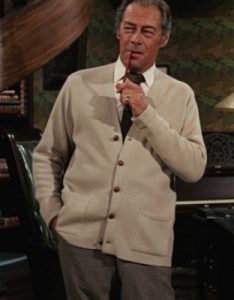 The title of today’s blog recognizes the gift bestowed by Judge Nannette Brown on everyone interested in the ADA in all its many details. Bailey v. Bd. of Commissioners of Louisiana Stadium and Exposition Dist., 2020 WL 5309962 (E.D. La. Sept. 4, 2020) is the latest of Judge Brown’s decisions concerning the dispute over stadium seating in the Superdome. Written after trial, the 64 page decision methodically dissects the law concerning concerning which standards apply to what parts of a facility after alterations, what the sight-line requirements for stadiums are under the various standards, including an exposition of the law concerning Auer deference and the effect of Kisor v. Wilke, how Title II program accessibility requirements fit into design/build standards, what kind of control is required for a person to be an “operator” of a public accommodation, when and how the “reasonable modification” requirement in Title III of the ADA applies to Title II entities, and last but not least the extent to which Title I’s “interactive process” requirement might apply to Titles II and III. The Fifth Circuit, and maybe the Supreme Court, will have the last word in this case, but if you are looking for a quick reference to almost every issue that comes up in a case involving altered facilities you can find it in this decision.¹ More
The title of today’s blog recognizes the gift bestowed by Judge Nannette Brown on everyone interested in the ADA in all its many details. Bailey v. Bd. of Commissioners of Louisiana Stadium and Exposition Dist., 2020 WL 5309962 (E.D. La. Sept. 4, 2020) is the latest of Judge Brown’s decisions concerning the dispute over stadium seating in the Superdome. Written after trial, the 64 page decision methodically dissects the law concerning concerning which standards apply to what parts of a facility after alterations, what the sight-line requirements for stadiums are under the various standards, including an exposition of the law concerning Auer deference and the effect of Kisor v. Wilke, how Title II program accessibility requirements fit into design/build standards, what kind of control is required for a person to be an “operator” of a public accommodation, when and how the “reasonable modification” requirement in Title III of the ADA applies to Title II entities, and last but not least the extent to which Title I’s “interactive process” requirement might apply to Titles II and III. The Fifth Circuit, and maybe the Supreme Court, will have the last word in this case, but if you are looking for a quick reference to almost every issue that comes up in a case involving altered facilities you can find it in this decision.¹ More
Internet Accessibility
Upcoming – ADA, FHA and Country Music
By Richard Hunt in Accessibility Litigation Trends, ADA, FHA, Internet Accessibility, Uncategorized Tags: ABA, ADA defense, American Bar Association, Country Music Songwriting, FHA Defense, Society of Exchange Counselors, UTCLE
 Just a quick note about some upcoming CLE opportunities, not all of them accessibility oriented. If you are wondering about the photo at left, it’s for something a little different. I’ll be presenting a one-hour webinar “Write Your Brief Like a Country Song: The Universal Rules of Effective Communication” for the University of Texas CLE program on January 24. You can find all the details at this link: “Write your Brief Like a Country Song.” On February 11 at 1:00 p.m. ET I’ll be collaborating with William Goren (www.williamgoren.com) to present “The Internet and ADA Compliance” for the American Bar Association. You can find registration details at this link: “The Internet and ADA Compliance.” Last but not least, this Sunday morning, January 19, I’ll be presenting a three hour overview of the ADA and FHA accessibility rules and regulations to the Society of Exchange Counselors in Fort Worth. For more about the Society you can check out their website at “Society of Exchange Counselors“
Just a quick note about some upcoming CLE opportunities, not all of them accessibility oriented. If you are wondering about the photo at left, it’s for something a little different. I’ll be presenting a one-hour webinar “Write Your Brief Like a Country Song: The Universal Rules of Effective Communication” for the University of Texas CLE program on January 24. You can find all the details at this link: “Write your Brief Like a Country Song.” On February 11 at 1:00 p.m. ET I’ll be collaborating with William Goren (www.williamgoren.com) to present “The Internet and ADA Compliance” for the American Bar Association. You can find registration details at this link: “The Internet and ADA Compliance.” Last but not least, this Sunday morning, January 19, I’ll be presenting a three hour overview of the ADA and FHA accessibility rules and regulations to the Society of Exchange Counselors in Fort Worth. For more about the Society you can check out their website at “Society of Exchange Counselors“
Quick Hits – Making a list and checking it twice edition
By Richard Hunt in Accessibility Litigation Trends, ADA, ADA - drive-by litigation, ADA - Hotels, ADA - serial litigation, ADA - Standing, ADA Internet, ADA Internet Web, ADA Litigation Procedure, FHA, FHA design/build litigation, FHA Reasonable Accommodation, Internet Accessibility, Title II Tags: ADA defense, ADA Mootness, ADA Website Litigation, Bike share programs, Dana Bowman, Eric Calhoun, FHA Defense, Peter Strojnik, unruh act
 Christmas is over with lumps of coal and sugar plums distributed in ways that often seem unrelated to who has been naughty or nice. Regular readers will see just how little has changed in the course of 2019 despite some important defense victories in the Sixth and Eight Circuits. With most ADA litigation centered in New York, California and Florida the serial litigation business will almost certainly continue to thrive in 2020.
Christmas is over with lumps of coal and sugar plums distributed in ways that often seem unrelated to who has been naughty or nice. Regular readers will see just how little has changed in the course of 2019 despite some important defense victories in the Sixth and Eight Circuits. With most ADA litigation centered in New York, California and Florida the serial litigation business will almost certainly continue to thrive in 2020.
Personal jurisdiction over website owners
“Legal Justice Advocates” the new kids on the block for website access demands.
By Richard Hunt in Accessibility Litigation Trends, ADA - serial litigation, ADA Internet, ADA Internet Web, ADA Web Access, FHA, FHA Advertising, FHA Class Actions, Internet Accessibility, Uncategorized Tags: ADA defense, FHA Defense, Legal Justice Advocates, website accessibility, Yvette Harrell
 There’s a new kid on the block in the world of serial accessibility demands.** It’s not a boy band, its “Legal Justice Advocates.” They’ve been sending demand letters to apartment owners, mortgage lenders and real estate agents claiming to represent an outfit called “Victims Awareness, Inc.” which, they claim, is a “national not-for-profit” with disabled members “throughout the nation.” Victims Awareness, Inc., they claim, uses experienced testers (who are not claimed to be disabled) to check on the accessibility of websites. The firm then sends a demand requiring remediation of unspecified defects and money for the lawyers. After seeing a few of these and getting calls from lawyers who saw more I thought it would be worthwhile to take a longer look at the firm and its supposed client. More
There’s a new kid on the block in the world of serial accessibility demands.** It’s not a boy band, its “Legal Justice Advocates.” They’ve been sending demand letters to apartment owners, mortgage lenders and real estate agents claiming to represent an outfit called “Victims Awareness, Inc.” which, they claim, is a “national not-for-profit” with disabled members “throughout the nation.” Victims Awareness, Inc., they claim, uses experienced testers (who are not claimed to be disabled) to check on the accessibility of websites. The firm then sends a demand requiring remediation of unspecified defects and money for the lawyers. After seeing a few of these and getting calls from lawyers who saw more I thought it would be worthwhile to take a longer look at the firm and its supposed client. More
The role of experts in Title III website litigation – what purpose can they serve?
By Richard Hunt in Accessibility Litigation Trends, ADA - drive-by litigation, ADA - serial litigation, ADA - Standing, ADA Internet, ADA Internet Web, ADA Litigation Procedure, ADA Website Accessibility, Internet, Internet Accessibility Tags: Accessibility tools, ADA defense, ADA experts, ADA Website Litigation, Diaz v General Nutrition, Diaz v Lobel's
 Two weeks ago I wrote about Diaz v. Lobels,* a case I think exemplifies some of the confusion concerning just what an accessible website should be. Today I want to take a harder look at the Court’s exclusion of testimony from the plaintiff’s expert to ask the question: Just what should an ADA expert testify about? The issue has come up in only three reported cases, each of which has its own take on the matter.
Two weeks ago I wrote about Diaz v. Lobels,* a case I think exemplifies some of the confusion concerning just what an accessible website should be. Today I want to take a harder look at the Court’s exclusion of testimony from the plaintiff’s expert to ask the question: Just what should an ADA expert testify about? The issue has come up in only three reported cases, each of which has its own take on the matter.
The exclusion of the plaintiff’s expert testimony in Diaz v. Lobels was based on two failings. The Court found the expert, Michael McCaffrey, failed to sufficiently describe his methodology and process, and failed to establish the methods were widely accepted or standard in the field. The Court did not reject the assumption underlying the report because the plaintiff and defendant stipulated that compliance with WCAG 2.0 or 2.1 would make the website accessible for ADA purposes and that non-compliance would make it inaccessible. Instead the Court focused on the “high level” description of the methods used by the team of individuals working for the expert, which the Court found insufficient when combined with a lack of testimony concerning the standards used. More

